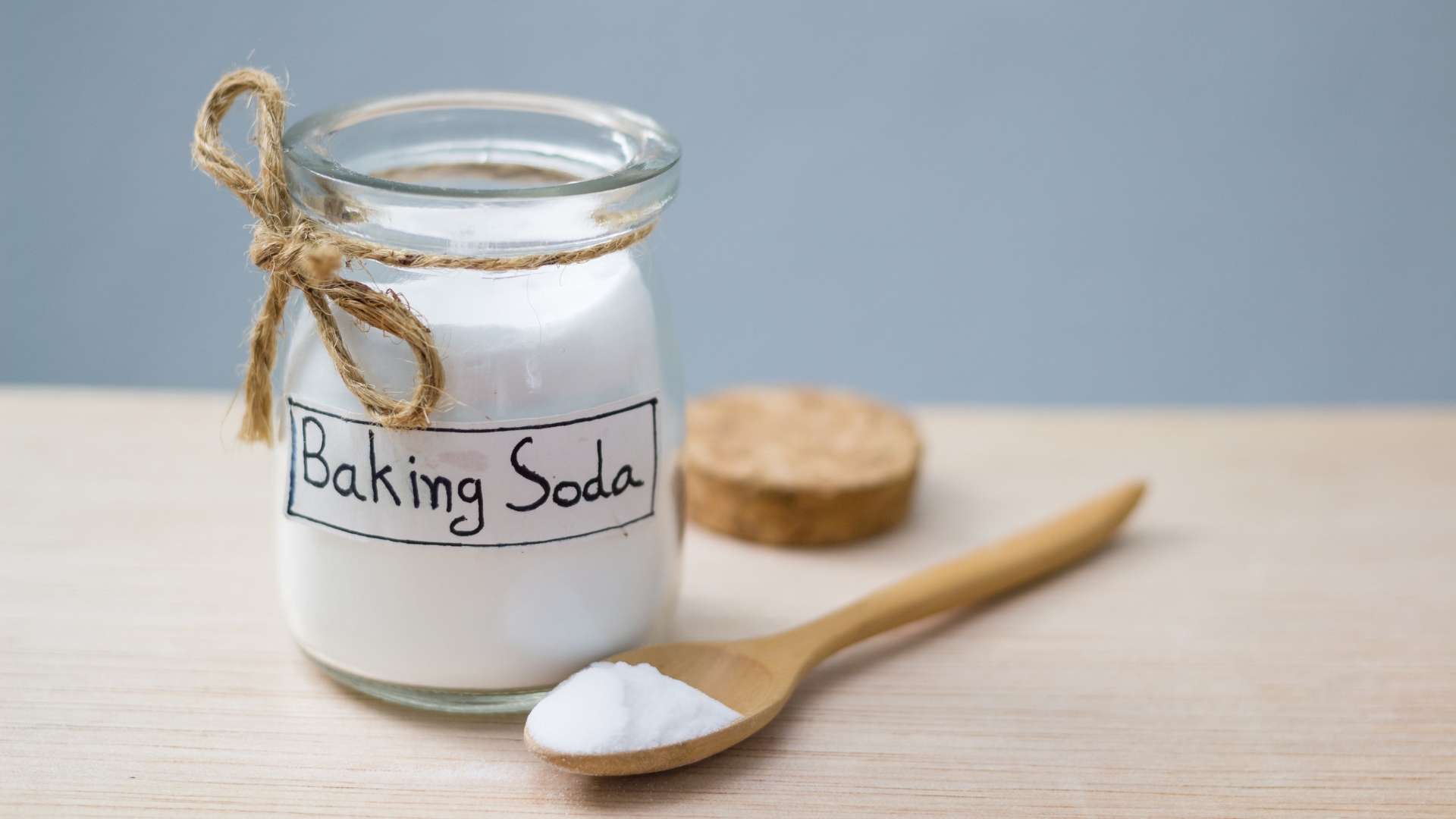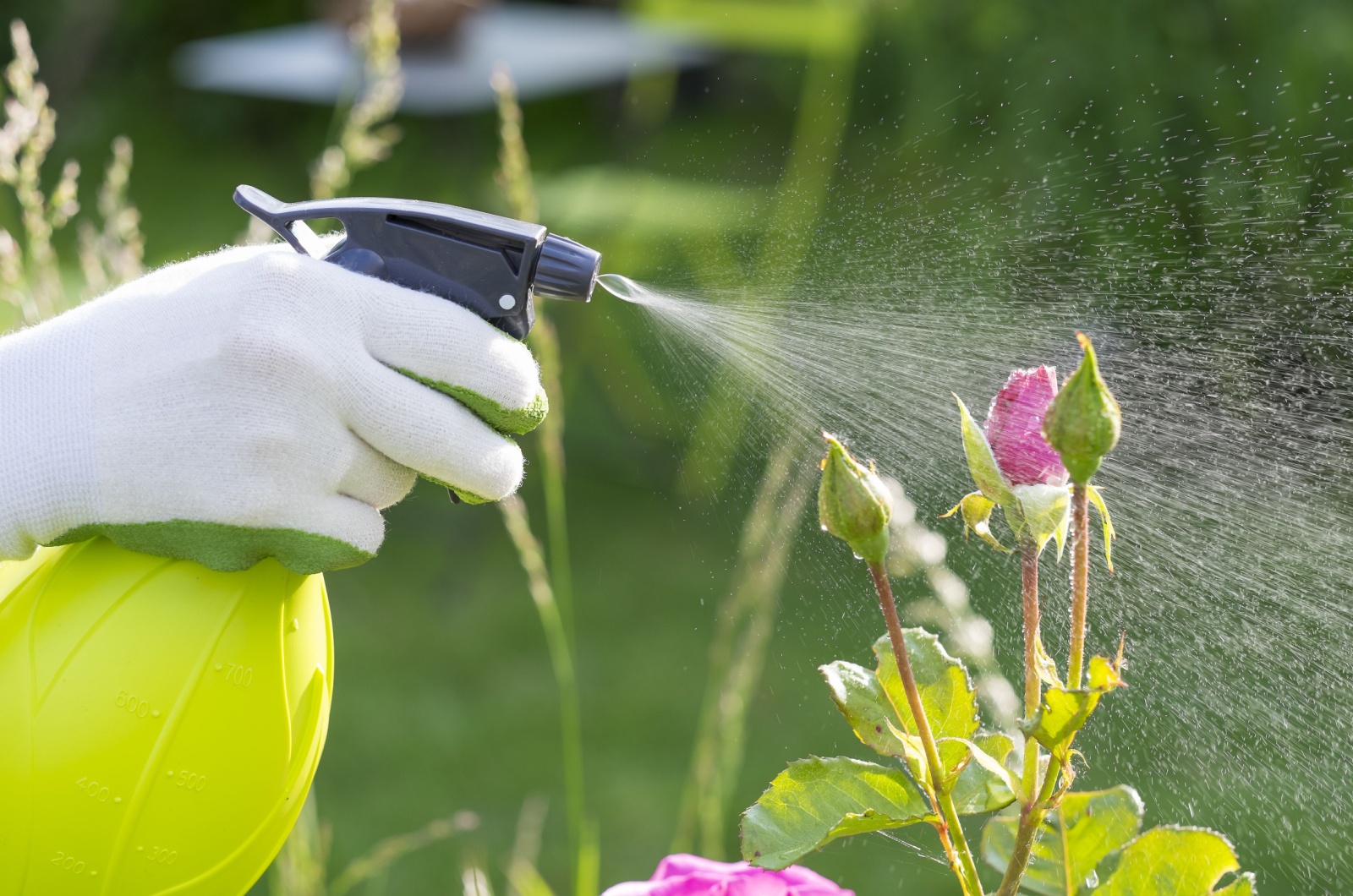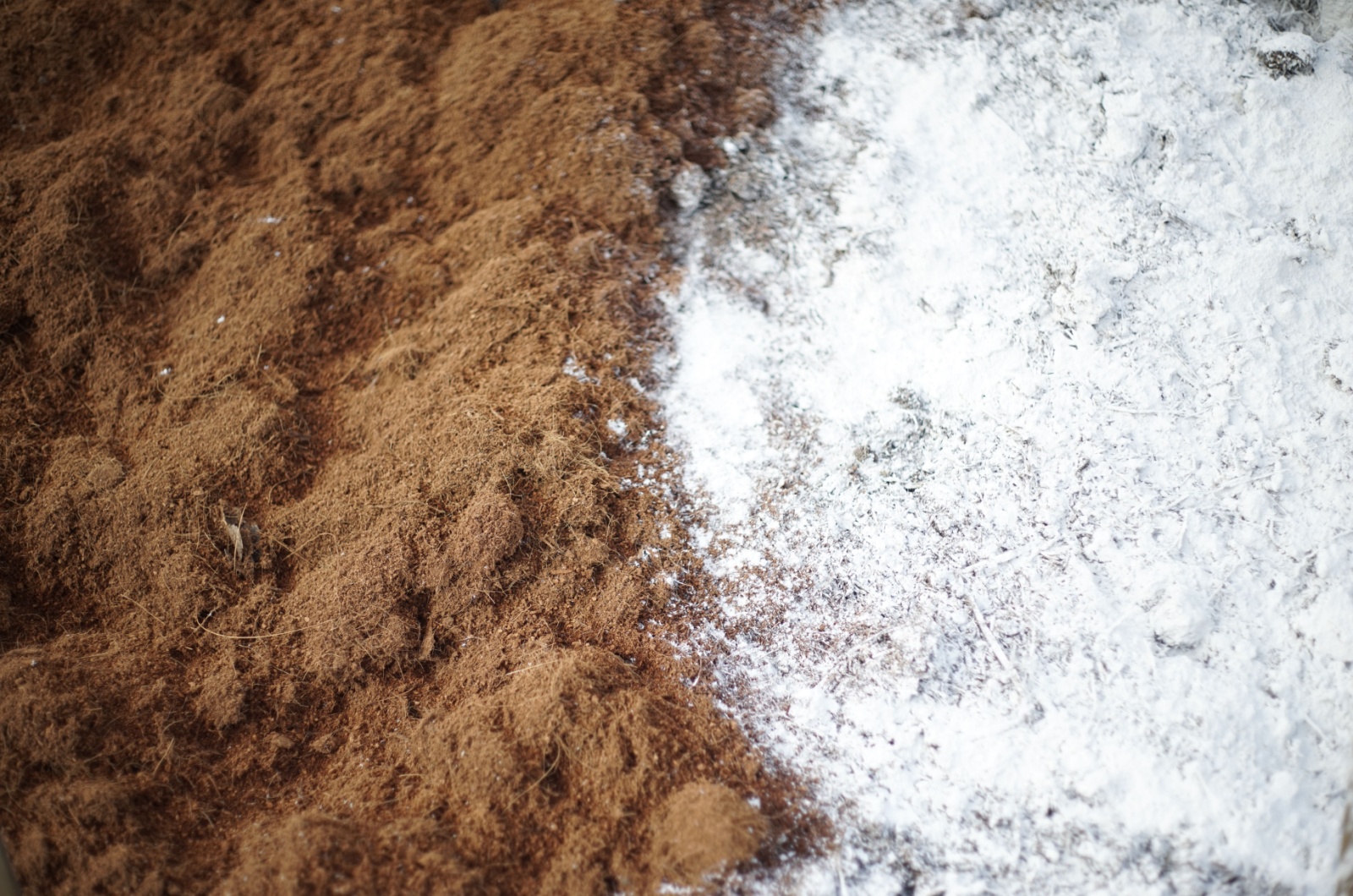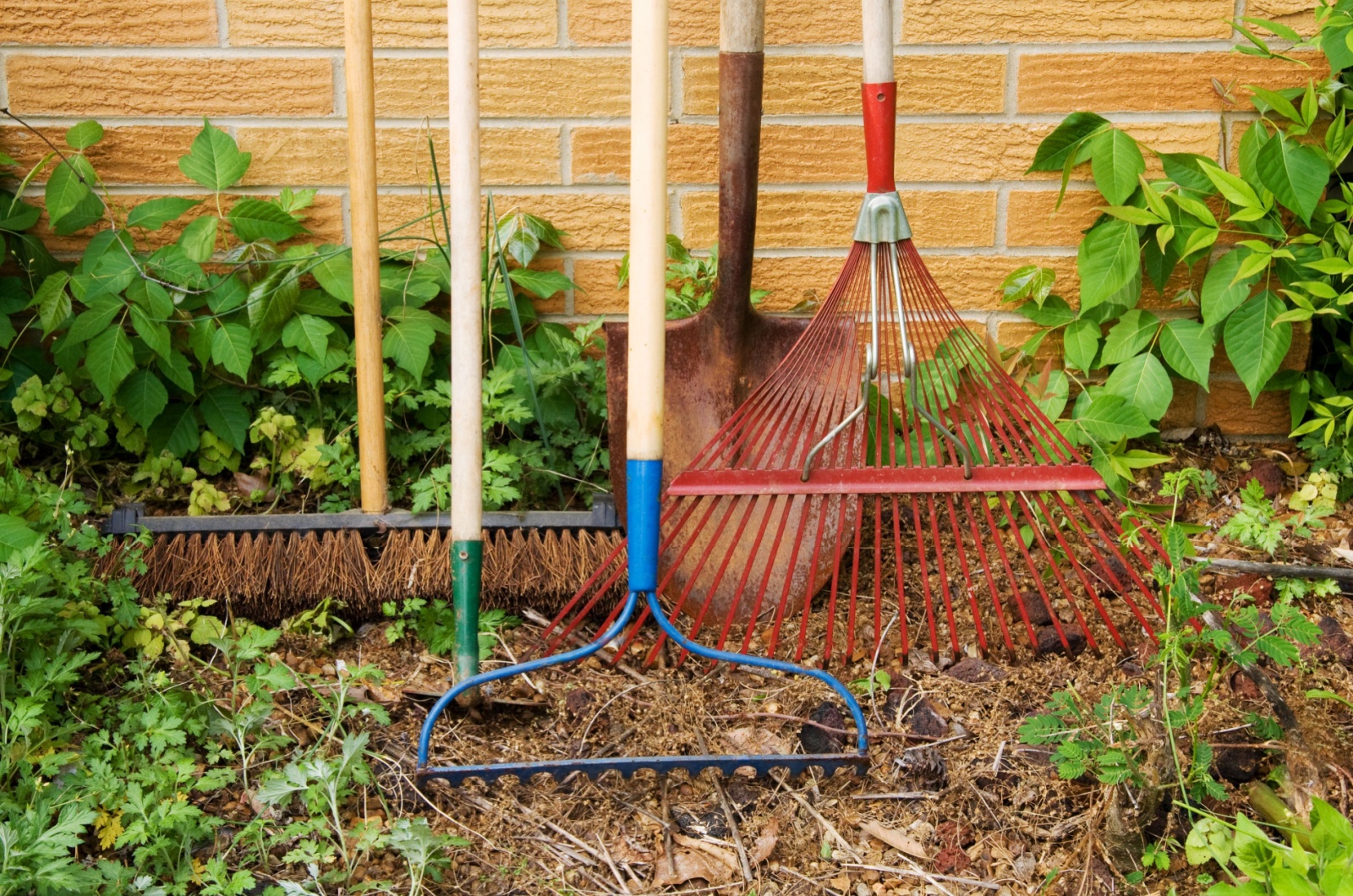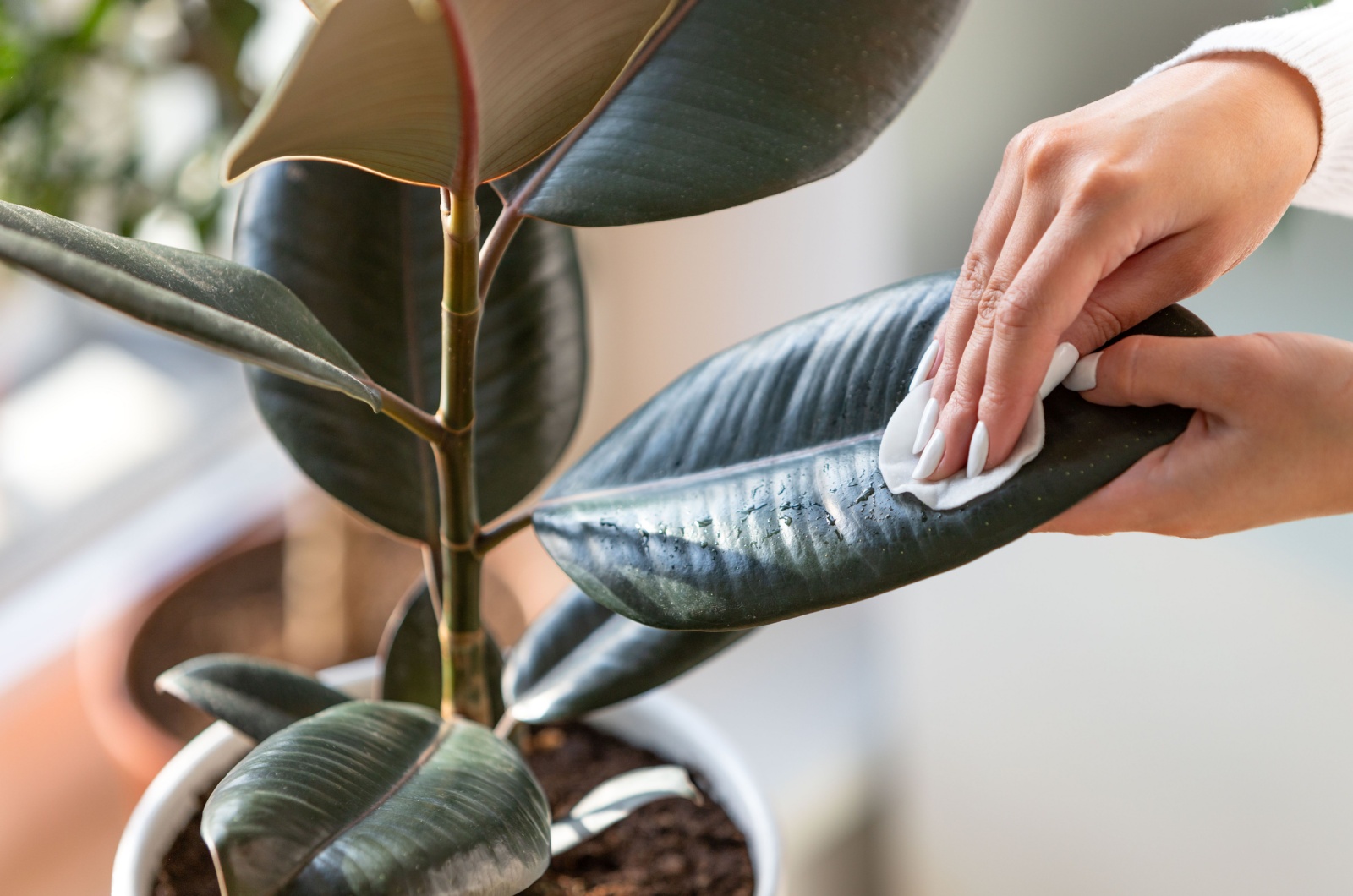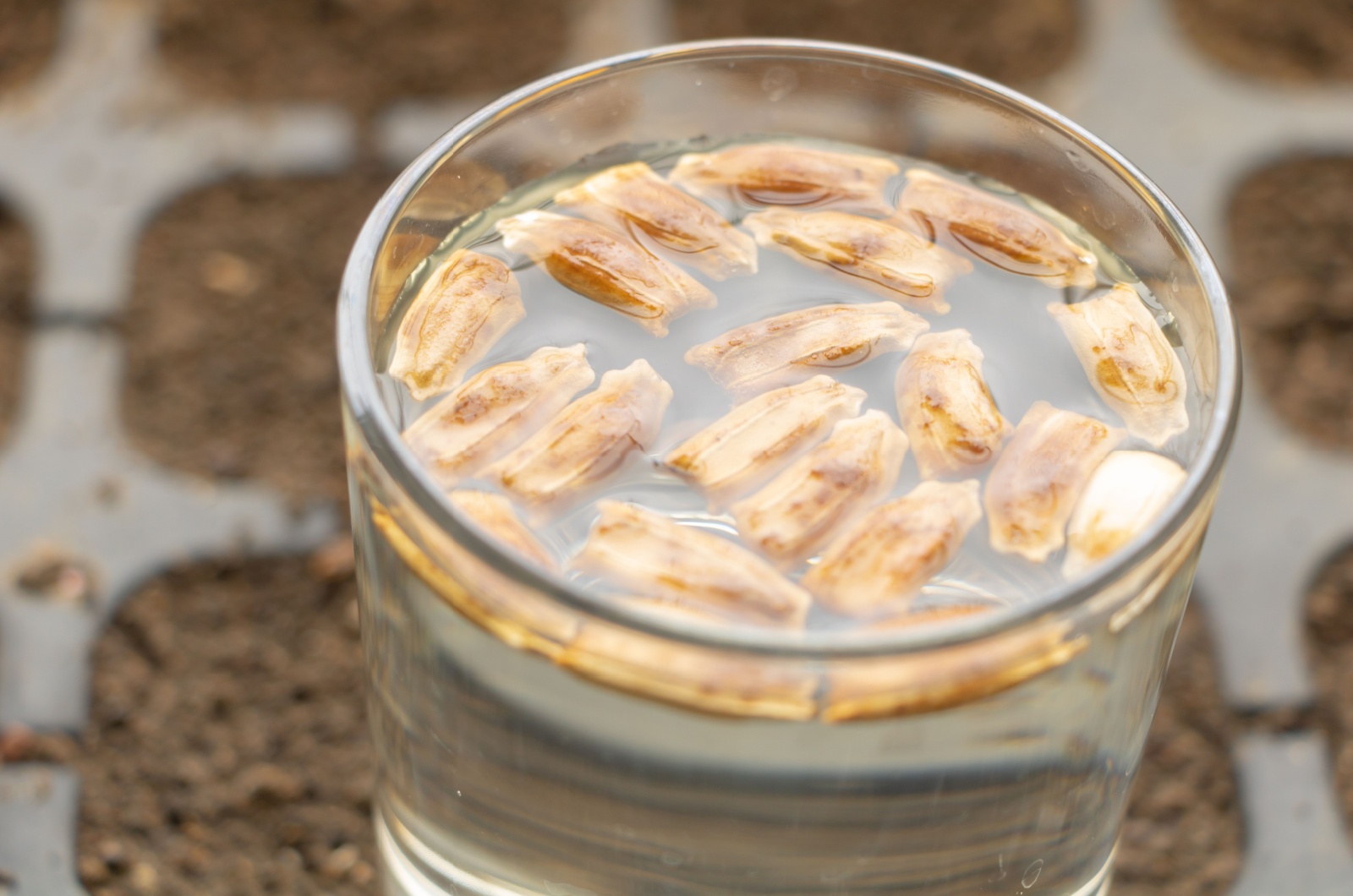Baking soda isn’t just for baking – it’s also a gardener’s best friend!
Not only can this kitchen staple improve your plant’s look and taste, but it can also tackle pests, fungi, and weeds.
So, instead of using chemicals that could potentially harm your garden, consider using baking soda as a natural alternative.
But there’s more!
Baking soda can be also added to the soil and compost to balance pH and improve nutrient availability.
Keep reading to learn more about how baking soda can help you in the garden!
1. Use It As A Pesticide
Baking soda can help deter pests like aphids, mites, beetles, and other common garden pests.
Simply mix it with water then add a little bit of liquid soap and a tablespoon of olive oil to create a natural pesticide spray. This eco-friendly solution can keep your plants safe without harming beneficial insects.
To get rid of anthills, mix 5 tablespoons of baking soda and powdered sugar, and add a tablespoon of water. Adding a bit of vinegar can help reduce the ant population.
2. Balance The pH Levels Of Your Soil
First of all, you can use a cup of vinegar, a cup of baking soda, and half a cup of water to test the soil – pour vinegar into the soil and watch what happens.
If it starts to bubble, then the pH levels of the soil are above 7; therefore, the soil is alkaline. If it doesn’t bubble, then put baking soda mixture in; bubbles will occur afterwards, which means that your soil is acidic.
In this case, add a small amount of baking soda to neutralize the soil because most plants don’t like acidity.
Related: Improve Your Garden Soil With These 6 Tips!
3. Add It To Your Compost
Baking soda can speed up the composting process by helping to break down organic matter more quickly.
Sprinkling a little baking soda onto your compost pile can help neutralize odors and create nutrient-rich compost for your garden.
Also read: Here’s A Common Ingredient You Should Start Adding To Your Compost Pile
4. Tackle Fungi And Bacteria
Instead of buying fungicides, consider using baking soda to tackle fungi and plant diseases!
Baking soda has antifungal and antibacterial properties, making it effective against common garden diseases like powdery mildew and black spot.
Mix it with water and a few drops of horticultural oil to create a natural fungicide spray that can help protect your plants from disease.
5. Clean Your Gardening Tools
Baking soda can be used as a gentle abrasive cleaner to remove any dirt, grime, and rust from your gardening tools.
Simply make a paste with baking soda and water, apply it to your tools, and scrub with a brush or sponge. Rinse thoroughly and dry to prevent rust.
6. Improve The Taste Of Your Crops
Baking soda can help improve the taste of certain crops, such as tomatoes, by reducing acidity in the soil.
Sprinkling a small amount of baking soda around the base of your tomato plants can help sweeten the fruit and enhance their flavor.
This might be useful: 7 Tomato Plant Pests That Can Completely Destroy Your Tomatoes
7. Make Your Plants Look Even Prettier
Baking soda can be used to clean and brighten up the leaves of your houseplants and outdoor plants.
Simply mix a small amount of baking soda with water to create a gentle cleaning solution, then use a soft cloth or sponge to wipe down the leaves. This will remove dust, dirt, and residue, leaving your plants looking healthy and vibrant.
You can also use baking soda to stimulate blooming of geraniums and begonias – mix two quarts of water and tablespoon of baking soda.
For plants like daisies and lilies, add a small amount of baking soda to the water before another watering session.
Related: Should You Use Baking Soda For Hydrangeas?
8. Eliminate Weeds
If you are tired of picking weeds all the time, consider using baking soda as it is an effective and natural way to eliminate these annoyances from the garden.
Sprinkling baking soda directly onto weeds or in between cracks in your garden paths can help dry out the weeds and prevent them from regrowing.
It’s a safe alternative to chemical herbicides and can help keep your garden weed-free without harming the environment.
Also read: Get Rid Of Driveway Weeds For Good With This Simple Solution
9. Encourage Seed Germination
Baking soda can encourage the germination process of the plant seeds because it can soften their coats – soaking seeds in a solution of water and baking soda can significantly speed up germination!
This can be especially helpful for seeds with hard outer shells or those that require specific conditions to germinate. Just be sure to follow recommended soaking times and concentrations to avoid damaging delicate seeds.
This might be useful: You Should Never Forget To Do This When Starting Seeds

